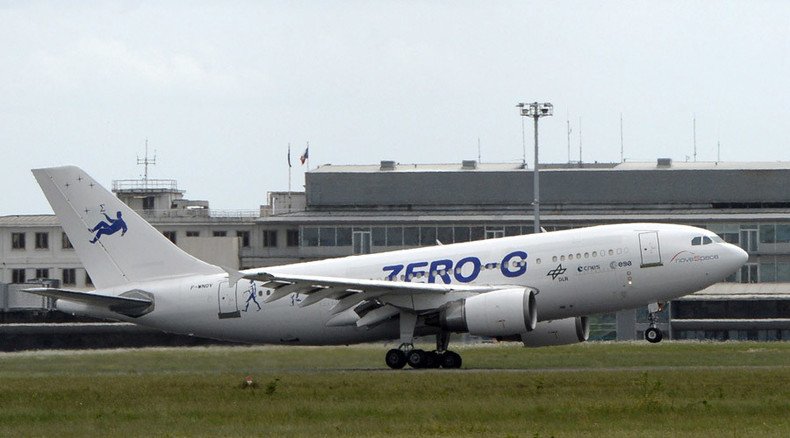Own vomit comet: Swiss make first zero-G flight

Swiss scientists performed micro-gravity experiments on board a special Airbus A310 plane during the first flight of this kind from Swiss soil. Such aircraft are used to train cosmonauts and entertain thrill-seekers too.
A reduced-gravity aircraft flies a series of parabolas, climbing up and plunging down, with passengers experiencing some 20 to 25 seconds of microgravity on each hump. Initially used to train crews for space missions, NASA’s version was dubbed ‘vomit comet’ by the press.
The three-hour Swiss test flight over the northern Mediterranean flew from Dübendorf Air Base in the canton of Zurich. It was performed on a new A310 operated by Novespace, a company collaborating with the French national center for space studies (CNES). A similar special airliner, an Airbus A300 called Zero-G, has been used in France since 1997 out of Bordeaux-Mérignac Airport.
The Airbus that was used in the Tuesday flight for Swiss researchers is ‘Konrad Adenauer’ of the German Air Force, which was retrofitted as a new Zero-G and made its maiden flight in France in May this year.
The scientists from the University of Zurich (UZH) and the Federal Institute of Technology at Lausanne (EPFL) performed a series of microgravity experiments. An UZH team continued the study of the effect of a zero-G environment on human immune cells they started on the International Space Station.
When the plans to launch reduced-gravity flight from Switzerland were reported in summer, UZH said it planned to offer commercial flights at about $9,400 per ticket. The A310 has room for 400 passengers, but scheduling would depend on the demand and the university’s own plans for the plane.
UZH is competing with several other operators of commercial zero-gravity experience worldwide. A company called Swiss Space Systems (S3) has announced plans for such flights from several locations, including Switzerland with the price tag starting at $2,700 – advertised as the cheapest in the industry.
Russia’s space agency offers seats at its Ilyushin IL-76 MDK zero-g aircraft to tourists, when the plane is not used to train Russian and foreign cosmonauts.











